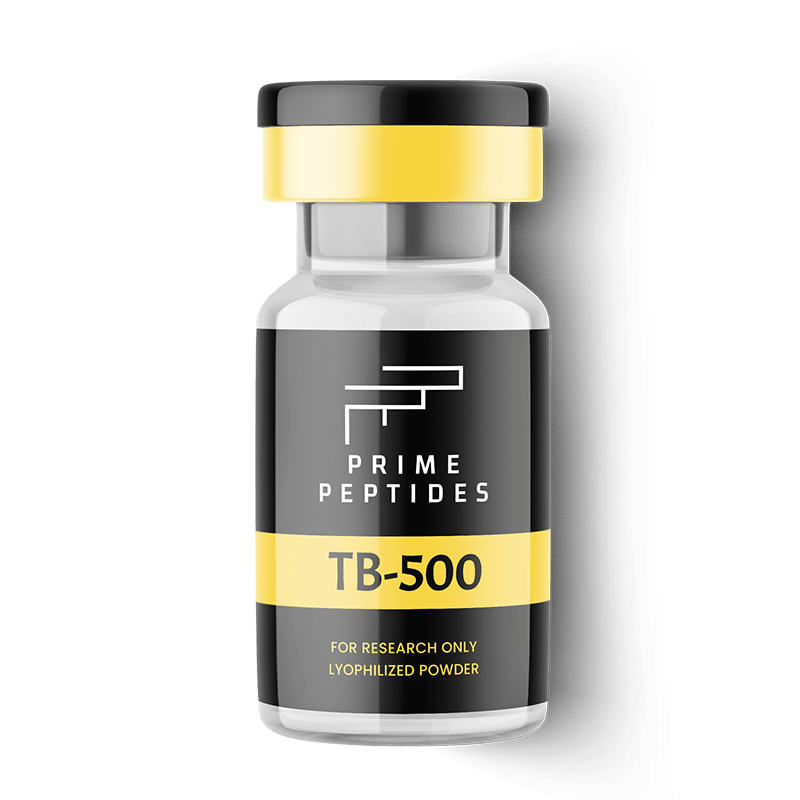Details
Details
Research
Research
Mechanism of Action
Mechanism of Action
- BAC Water Sold Separately
- Syringes Not Included
- Peptides sold in powdered form
Prime Peptides™
TB-500
TB-500
All products are for laboratory research purposes only. Not for human consumption, medical, or veterinary use. Prime Peptides does not condone or support the use of peptides outside of controlled scientific research. By purchasing, you acknowledge that you are a qualified researcher or institution. You must be 21 or older.
View full detailsCouldn't load pickup availability
What is TB-500/Thymosin Beta 4?
TB-500/Thymosin Beta-4 (Tβ4) is a 43-amino acid peptide widely studied in cell migration, tissue organization, and molecular signaling research. Researchers investigate its role in cellular processes, including cytoskeletal dynamics and protein interactions. This high-purity, lyophilized (powdered) peptide is manufactured for in vitro studies and controlled laboratory analysis only. Each vial undergoes rigorous quality control to ensure consistency in research applications.
Key Details
| Property | Details |
|---|---|
| Chemical Formula |
C212H350N56O78S |
| Molecular Mass | 4963.49 g/mol |
| CAS Number | 77591-33-4 |
| Vial Size | 3 ml |
| Vial Contents | Lyophilized Powder |
What is TB-500/Thymosin Beta 4?
TB-500/Thymosin Beta-4 (Tβ4) is a 43-amino acid peptide widely studied in cell migration, tissue organization, and molecular signaling research. Researchers investigate its role in cellular processes, including cytoskeletal dynamics and protein interactions. This high-purity, lyophilized (powdered) peptide is manufactured for in vitro studies and controlled laboratory analysis only. Each vial undergoes rigorous quality control to ensure consistency in research applications.
Key Details
| Property | Details |
|---|---|
| Chemical Formula |
C212H350N56O78S |
| Molecular Mass | 4963.49 g/mol |
| CAS Number | 77591-33-4 |
| Vial Size | 3 ml |
| Vial Contents | Lyophilized Powder |
Details
Details
Research
Research
Mechanism of Action
Mechanism of Action
- BAC Water Sold Separately
- Syringes Not Included
- Peptides sold in powdered form

Legal Disclaimer
For research purposes only. Not for consumption, clinical use, or diagnostic purposes. Buyer assumes all responsibility for proper handling and use in compliance with applicable regulations.
Certificate of Analysis
Top Quality Peptides
We offer the most pure and trustworty source of peptides for all of your research needs.








